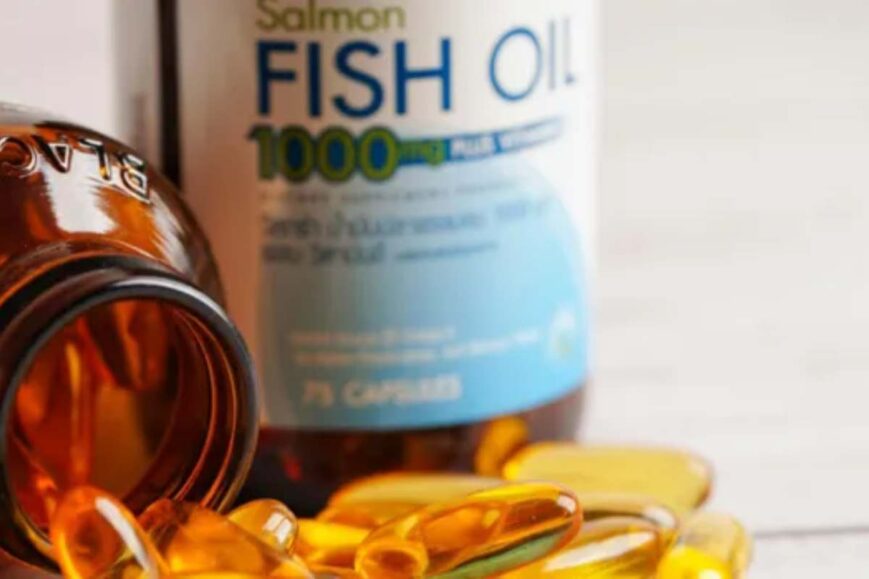Cod Liver Oil Vs Fish Oil – Fish and cod liver oil are from different sources, but they can increase your omega-3 fatty acid intake. Cod liver oil comes from cod, whereas fish oil is derived from various fatty fish.
Fish oil and cod liver oil remain two diverse health supplements. They come from various fish sources and have exceptional benefits. Generally speaking, however, cod liver oil is a specific type of fish oil.
The health benefits of fish and cod liver oil are that they are rich sources of high omega-3 fatty acids. Omega-3 fatty acids can support many body systems and may prevent many ailments. Your diet should comprise omega-3 fatty acids, as the human body cannot make it.
Some plant sources (nuts, seeds, and vegetable oil) contain omega-3 fatty acid alpha-linolenic acid (ALA). It hasn’t been verified to be helpful, as are the fatty acids from fish oils.
Fish oil and cod liver oil supplements remain the best substitute if you don’t consume two to three servings of (nonfried) fish per week.
What are the sources of fish oil and cod liver oil?

The flesh of fatty fish is the Source of fish oil. These fatty fish are as follows.
- Anchovies
- Herring
- Tuna
- Salmon
- Mackerel
Cod liver oil mostly remains extracted from the livers of Atlantic and Pacific codfishes.
By consuming phytoplankton, the fish get their omega-3 fatty acids, which absorb microalgae (A source of rich omega-3 fatty acids).
What remain the health benefits of cod liver oil?
Cod liver oil comprises high levels of vitamins A and D and EPA and DHA. Numerous health benefits of cod liver oil remain due to its powerful anti-inflammatory properties.
Cod liver oil may help:
- Lower inflammation all over the body
- Reduce pain associated with arthritis
- Reduce anxiety and depression
- Promote healthy fetal brain function and eyesight
- Maintain bone density
- Support a healthy immune system
- Reduce risks of type 1 diabetes when used in pregnancy and in newborns
- Lower triglycerides in the blood
- Prevent upper respiratory illness
- Lower blood pressure
- Slightly increase HDL, the “good cholesterol”
- Prevent plaque build-up in arteries
Cod liver oil used to be a prevalent supplement given to children in the United States, mainly to prevent rickets, until the practice raised concerns about potential vitamin toxicity.
What are the aids of fish oil?
Thirty percent of fish oil remains pure omega-3 fatty acids. Fish oil is beneficial in areas of:
- Heart health
- Mental health
- Inflammatory ailments
- Pregnancy
- Breastfeeding
Fish oil may aid in the following:
- Aids in the healthy development and function of the brain.
- Stops mental health disorders for those at risk and lessens symptoms of schizophrenia and bipolar disorder.
- Reduce waist circumference
- Reduce inflammation and pain associated with rheumatoid arthritis.
- Support skin health
- Support pregnancy, fetal development, and breastfeeding
- Support liver health
What are the drawbacks of using fish and cod liver oil?
People with heart and blood conditions should be cautious about taking fish or cod liver oil.
Cod liver oil may cause:
- Belching
- Nosebleeds
- Heartburn
- Make blood thinner
- Comprise unhealthy levels of vitamins A and D, even though this is still debated.
- Avoid consuming cod liver oil if you’re pregnant.
Fish oil may cause:
- Nausea
- Trouble with blood clotting or nosebleeds
- Rash
- Loose stool
- Reduced vitamin E levels
- Indigestion and fish-tasting burps
- Interactions with contraceptive medicine, weight loss drugs comprising orlistat, and blood medicines
What is the required amount of fish and cod liver oil you should consume?
Fish and cod liver oil supplements remain available in liquid and capsule forms. Supplements usually comprise less mercury than fresh fish.
- Calculate your fish and cod liver oil dosage per the amount of EPA, DHA, and vitamins in fish or cod liver oil. There’s no standard suggested dosage of EPA or DHA, so you can determine the correct dose by speaking with your doctor and reading supplement bottle labels, besides comparing the DHA and EPA levels to what you might get if you ate a whole fish.
- It’s likely best to take only fish or cod liver oil, but not both. The two oils benefit from omega-3 fatty acids, but cod liver oil contains the added vitamins A and D. If you want those additional vitamins, you can consume just cod liver oil.
- You can take fish oil to avoid those extra vitamins. You can similarly take fish oil besides vitamin A and D supplements if you require aid from those vitamins but don’t like to take cod liver oil.
- You should take cod liver or fish oil with fatty food to help you better digest and absorb omega-3 fatty oils.
- Do not ever switch from a prescribed medicine to a supplement without the assistance and oversight of your doctor.
Conclusion
You can upsurge your omega-3 fatty acids intake by including fish and cod liver oil. These fatty acids are essential for the healthy functioning of most body systems, including the heart and brain, and for the development of fetuses throughout pregnancy.


